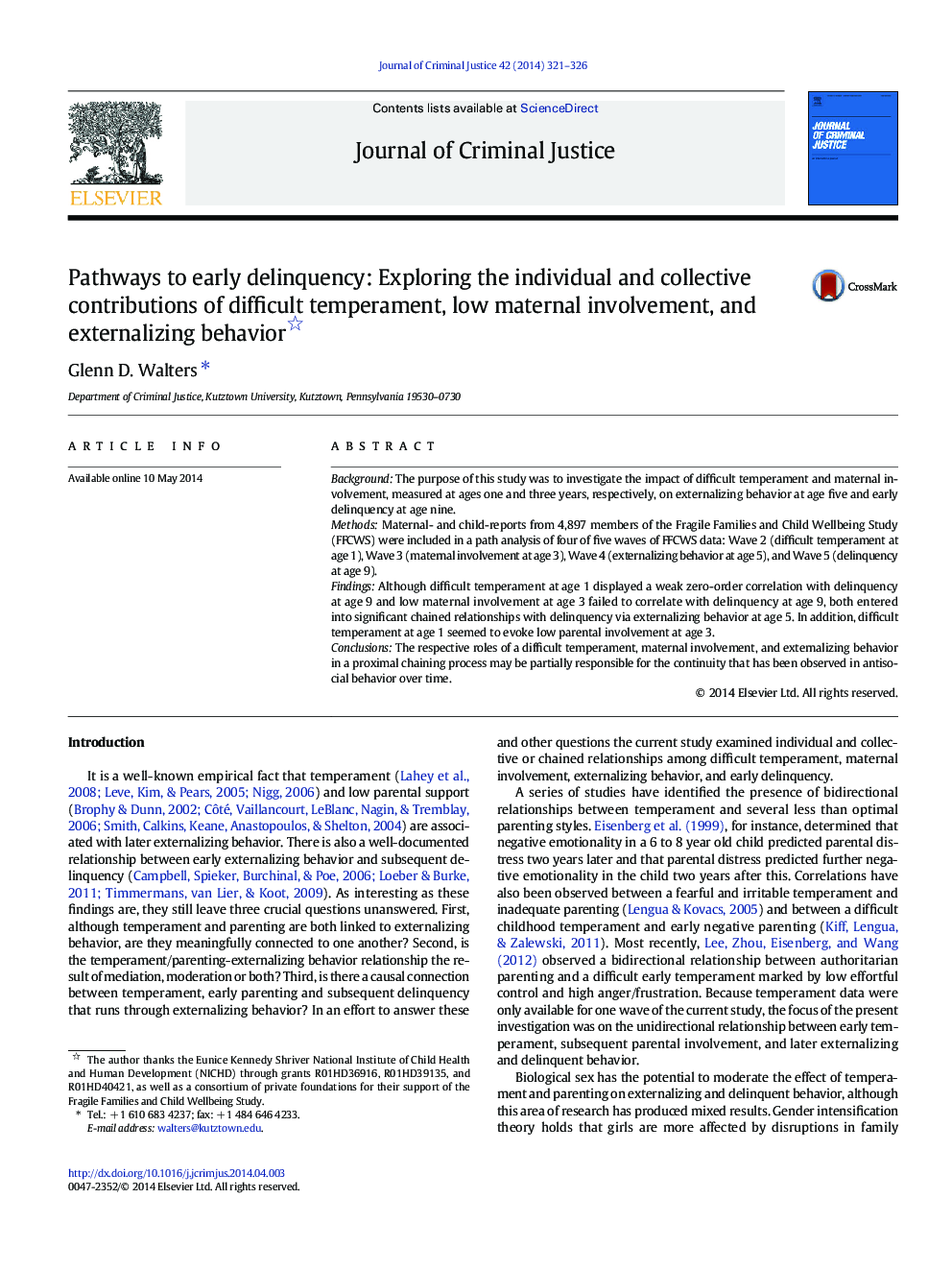| کد مقاله | کد نشریه | سال انتشار | مقاله انگلیسی | نسخه تمام متن |
|---|---|---|---|---|
| 882671 | 912012 | 2014 | 6 صفحه PDF | دانلود رایگان |
• Effect of difficult temperament and maternal involvement on delinquency
• Maternal and child-reports from Fragile Families and Child Wellbeing Study (FFCWS)
• Difficult temperament at age 1 displayed weak correlation with delinquency at age 9
• Difficult temperament at age 1 predicted maternal involvement at age 3
• Difficult temperament affects delinquency via externalizing behavior
BackgroundThe purpose of this study was to investigate the impact of difficult temperament and maternal involvement, measured at ages one and three years, respectively, on externalizing behavior at age five and early delinquency at age nine.MethodsMaternal- and child-reports from 4,897 members of the Fragile Families and Child Wellbeing Study (FFCWS) were included in a path analysis of four of five waves of FFCWS data: Wave 2 (difficult temperament at age 1), Wave 3 (maternal involvement at age 3), Wave 4 (externalizing behavior at age 5), and Wave 5 (delinquency at age 9).FindingsAlthough difficult temperament at age 1 displayed a weak zero-order correlation with delinquency at age 9 and low maternal involvement at age 3 failed to correlate with delinquency at age 9, both entered into significant chained relationships with delinquency via externalizing behavior at age 5. In addition, difficult temperament at age 1 seemed to evoke low parental involvement at age 3.ConclusionsThe respective roles of a difficult temperament, maternal involvement, and externalizing behavior in a proximal chaining process may be partially responsible for the continuity that has been observed in antisocial behavior over time.
Journal: Journal of Criminal Justice - Volume 42, Issue 4, July–August 2014, Pages 321–326
